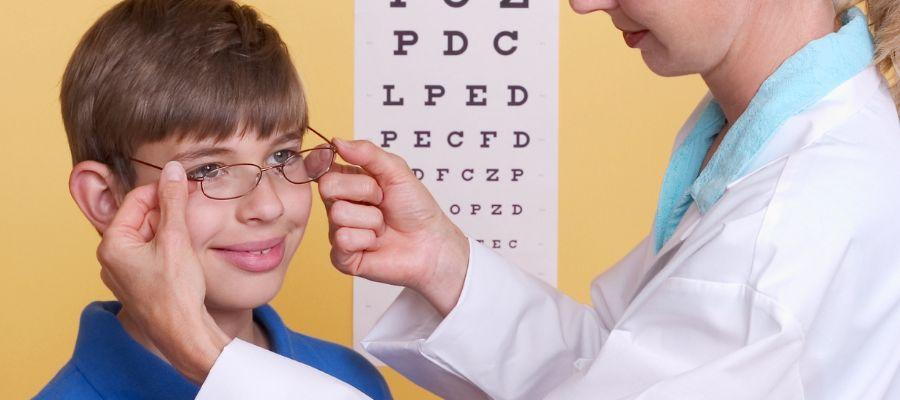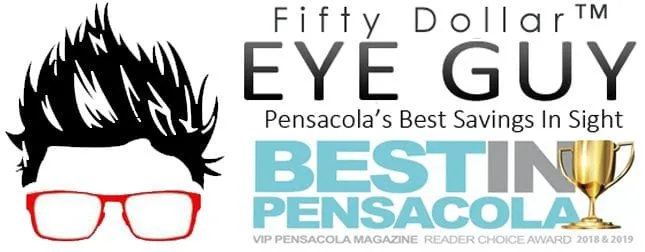
How Can I Prepare For An Eye Exam?
If you are gearing up for an upcoming eye exam with Dr. Joseph Tegenkamp at the Fifty Dollar Eye Guy, you might be wondering what you can do to prepare. With two convenient locations in Pensacola, Florida, the practice is committed to delivering high-quality eye care in a friendly and professional environment. In the following article, we'll provide you with valuable tips and suggestions to help you make the most of your appointment. This includes what to bring with you and what to expect during the examination process, ensuring you a comfortable experience during your visit.
Understanding the Importance of Eye Exams
The role of regular eye exams in maintaining eye health
Eye exams don't just detect vision problems; they can also reveal key information about your overall health. Regular eye exams allow doctors to detect any early signs of eye diseases like glaucoma and cataracts, which if not managed promptly, can result in a loss of vision. Therefore, having regular eye exams is just as significant as regular health checkups.
Possible consequences of neglecting eye exams
Neglecting eye exams can lead to serious consequences. Many eye diseases do not show any symptoms until they've considerably progressed. Without regular eye exams, these conditions can go undetected and may lead to partial or even complete vision loss. Diseases such as diabetic retinopathy and age-related macular degeneration can lie dormant for a long time before visibly impacting your sight.
Frequency of eye exams recommended by professionals
Eye care professionals recommend having an eye exam at least once every two years. However, the frequency should increase as you age or if you have risk factors like diabetes, a family history of eye diseases, or a previously diagnosed eye condition. Your eye doctor can provide a personalized recommendation based on your circumstance.
Knowing What to Expect During an Eye Exam
Overview of the eye exam process
To ease any apprehensions, it's helpful to know what to expect during the exam. The eye exam usually begins with a review of your medical history and any vision-related concerns. This is followed by a series of tests to determine your eye's health and your visual acuity.
Different tests involved in an eye exam
During an eye examination, you might undergo a visual acuity test to assess the sharpness of your vision, a refraction assessment to determine your precise eyeglass prescription, and a peripheral vision test to evaluate your side vision. Other possible tests include eye movement tests, and slit-lamp examinations to inspect the structures of your eyes.
Estimated duration of a typical eye exam
On average, a comprehensive eye examination takes about 45 to 90 minutes, depending on the complexity of tests performed. It's best to allocate sufficient time for your appointment to ensure a thorough check-up.
Gathering Your Medical History
Why your medical history is essential for the eye exam
Your medical history is a vital part of your eye exam as it provides your eye doctor with vital information about your health. Certain health conditions like diabetes or high blood pressure can impact your eye health, and certain medications can also affect vision.
Information to include in your medical history
Your medical history should include past health problems, current conditions and medications, allergies, and lifestyle habits like smoking or alcohol consumption. Don't forget to list any surgeries or hospital stays you've had, as well as instances of specific diseases in the family, such as diabetes or glaucoma.
How to retrieve your medical history if you don't already have it
If you don't currently possess your medical history, contact your previous health care providers. They may be able to provide you with this information, or you may need to visit your family doctor to gather the necessary details.
Listing Current Eye Problems or Symptoms
Understanding the link between symptoms and eye health
Even minor symptoms like blurred vision, dry eyes or frequent headaches may point to an underlying eye condition. By understanding the link between symptoms and eye health, you can detect problems early and take steps to maintain good vision.
Common eye problems to be aware of
Common eye problems that demand immediate attention include blurred vision, double vision, difficulty seeing in low light levels, and eye pain or swelling. You should also be mindful of more subtle signs like flashes of light, black spots or 'floaters,' and excessive tears or watering.
The significance of providing accurate symptom information
Accuracy is paramount when providing your symptom information. The information you provide can assist the doctor in diagnosing your eye problem. If possible, note down when the symptoms started, what you were doing at the time, and whether anything improves or worsens these symptoms.
Identifying Any Vision-Related Concerns
Aspects of vision that may prompt you to schedule an eye exam
Aspects such as persistent headaches, squinting, difficulty reading or viewing distant objects, seeing halos around lights, or having itchy or dry eyes could prompt the need for an eye exam. Any consistent change in your vision is significant enough to schedule an appointment.
How your lifestyle may impact your vision
Lifestyle choices, including diet, exercise, and habits such as smoking and alcohol, significantly impact your vision. Extended screen time can cause eyestrain, dryness, or blurred vision. Regular exercise and a healthy diet can help prevent conditions like diabetes, which can lead to vision problems.
How to monitor changes in your vision
Monitor your vision by testing your vision at home with an eye chart or online vision screening tools. Make note of any changes and discuss them with your eye doctor during your examination.
Reviewing Your Family’s Eye Health History
Why hereditary factors matter in eye health
Genetics can play a significant role in the development of certain eye conditions. If there's a history of eye diseases in your family, you may be at a higher risk. Sharing this information with your eye doctor can shape early prevention strategies or treatments.
The types of eye conditions that are often hereditary
Common eye disorders known to have a hereditary component include glaucoma, macular degeneration, retinal degeneration, and certain types of cataracts. Kindly consult your eye doctor about the hereditary nature of any eye diseases found in your family history.
The importance of having a comprehensive family history
Knowing your family history helps your doctor determine whether you're at risk of developing any hereditary eye diseases and conditions. It allows them to prescribe any necessary preventatives and maintain regular monitoring of your eye health.
Preparing Questions for the Eye Doctor
The benefits of being proactive in your health care
Being proactive in managing your health is integral to maintain good eye health. It involves taking the time to understand your symptoms and asking your eye doctor about any uncertainties you may have regarding your situation.
Examples of relevant questions to ask
You may want to ask about the health of your eyes, how often you should get an eye exam, what you can do to protect your vision, and if there are any signs of eye diseases you should keep an eye out for. Clarify your doubts concerning your diagnosis and discuss the benefits and risks of your treatment options.
Why it's important to understand your diagnosis and treatment
Understanding your diagnosis and treatment plan empowers you to be an active participant in your health care. It ensures you're taking the right steps towards better eye health and gives you peace of mind.
Taking Along Your Current Prescription Glasses or Contact Lenses
Why your current eyewear is relevant to your eye exam
Your existing prescription glasses or contact lenses provide a reference point for your eye doctor. They can identify any changes in your vision by comparing your current prescription with the results of your eye exam.
What the doctor can learn from your current prescription
By examining your current prescription, your eye doctor can get an idea of how your vision has changed over time. This can help in detecting and diagnosing eye problems and determining the need for a change in your prescription.
The benefit of having your eyewear's effectiveness evaluated
Having your current eyewear evaluated during your eye exam helps ensure it's still aiding your vision appropriately. If your prescription has changed or if your eyewear is damaged, you may not be seeing as clearly as possible.
Arranging for Help If Your Pupils are Dilated
Understanding the implications of pupil dilation
For certain eye exams, your doctor may dilate your pupils. While essential for a comprehensive examination, pupil dilation often causes blurred vision and light sensitivity for a few hours after the exam.
Why you may need assistance post-exam
Because of these side effects, it's advised to have a friend or family member ready to drive you home after your exam. You might also need to arrange for some aid at work or home if your vision remains blurred for a few hours.
Planning for potential vision impairment following the exam
Knowing what to expect after the exam can help you prepare for any potential vision impairment. Plan your activities for the day accordingly, and arrange for assistance if required, ensuring a safe and secure post-exam experience.
Choosing a Reliable Eye Care Provider
Considerations when selecting an eye doctor
When selecting your eye doctor, consider their experience, reputation, service quality, and offerings. A trustworthy eye care provider will provide comprehensive eye exams, discuss your eye health openly, answer your questions and have quality eyewear options available.
Overview of Fifty Dollar Eye Guy and Dr. Joseph Tegenkamp
At Fifty Dollar Eye Guy, Dr. Joseph Tegenkamp offers friendly and professional care for everyone. The commitment at our practice is to provide exceptional service to all of our Pensacola patients. Dr. Tegenkamp believes in offering personalized care and investing the necessary time with each patient to ensure a comfortable experience for everyone involved.
Why locals choose Fifty Dollar Eye Guy for their eye care
Locals trust Fifty Dollar Eye Guy for their eye care because of our emphasis on providing high-quality care to our family of patients, offering comprehensive eye exams, a large selection of fashionable eyewear, and the best possible vision care. Pay us a visit today to meet our staff and schedule your next appointment.





